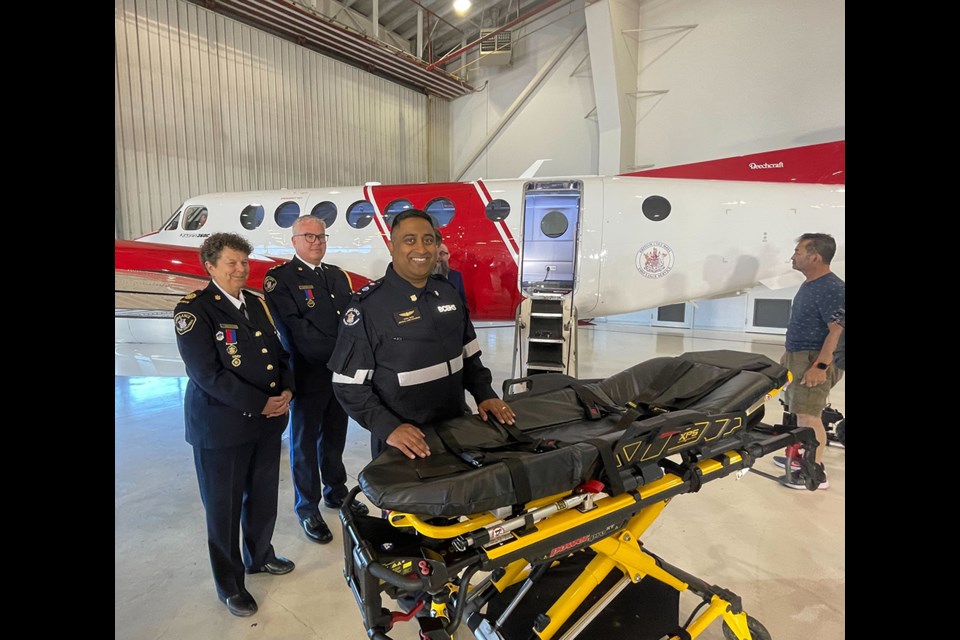The entire fleet of air ambulance planes is being replaced, giving BC Emergency Health Services more access to rural communities and providing more advanced medical equipment.
The first new Beechcraft King Air 360CHW air ambulance went into service on May 1 and the rest will be rolled out by the end of next year.
The plane is equipped to load stretchers automatically rather than having paramedics lift them in.
The cost of replacing the planes is $673 million. However, this does not expand the fleet.
Critical care flight paramedic Chris Singh said the new King Air 360s will be “safer and more effective,” and will include equipment such as an ECMO, which supports breathing and cardiac function, equipment to allow better incubators for infant transport as well as equipment to help bariatric patients – the stretcher can lift 260 kilograms.
Singh demonstrated the power lift on Friday at the hangar of Carson Air, located at the Vancouver International Airport South Terminal in west Richmond.
The new planes will also be able to land on gravel, which means they can go to more remote, rural and Indigenous communities than the previous planes.
“This means that our team can bring our life-saving training and equipment to nearly every community in the province,” Singh said.
“(Replacement of the fleet) is truly a very big advancement for the air ambulance service in the province,” he added.
Each plane can hold two patients as well as three passengers – two paramedics and a family member.
Of the 12 air ambulances, flown by Carson Air pilots, three are stationed in Vancouver and Kelowna, two are in Prince George and one is in Fort St. John. There are three more kept in reserve.
There were 8,290 patient transports in the past year involving air resources, 6,177 of which were by airplane. About 70 per cent of calls for air ambulances use airplanes and 30 per cent use helicopters.
Leanne Heppel, chief ambulance officer, noted that there is a plan to also replace ambulance helicopters as well.
Got an opinion on this story or any others in Richmond? Send us a letter or email your thoughts or story tips to [email protected]. To stay updated on Richmond news, sign up for our daily headline newsletter.




